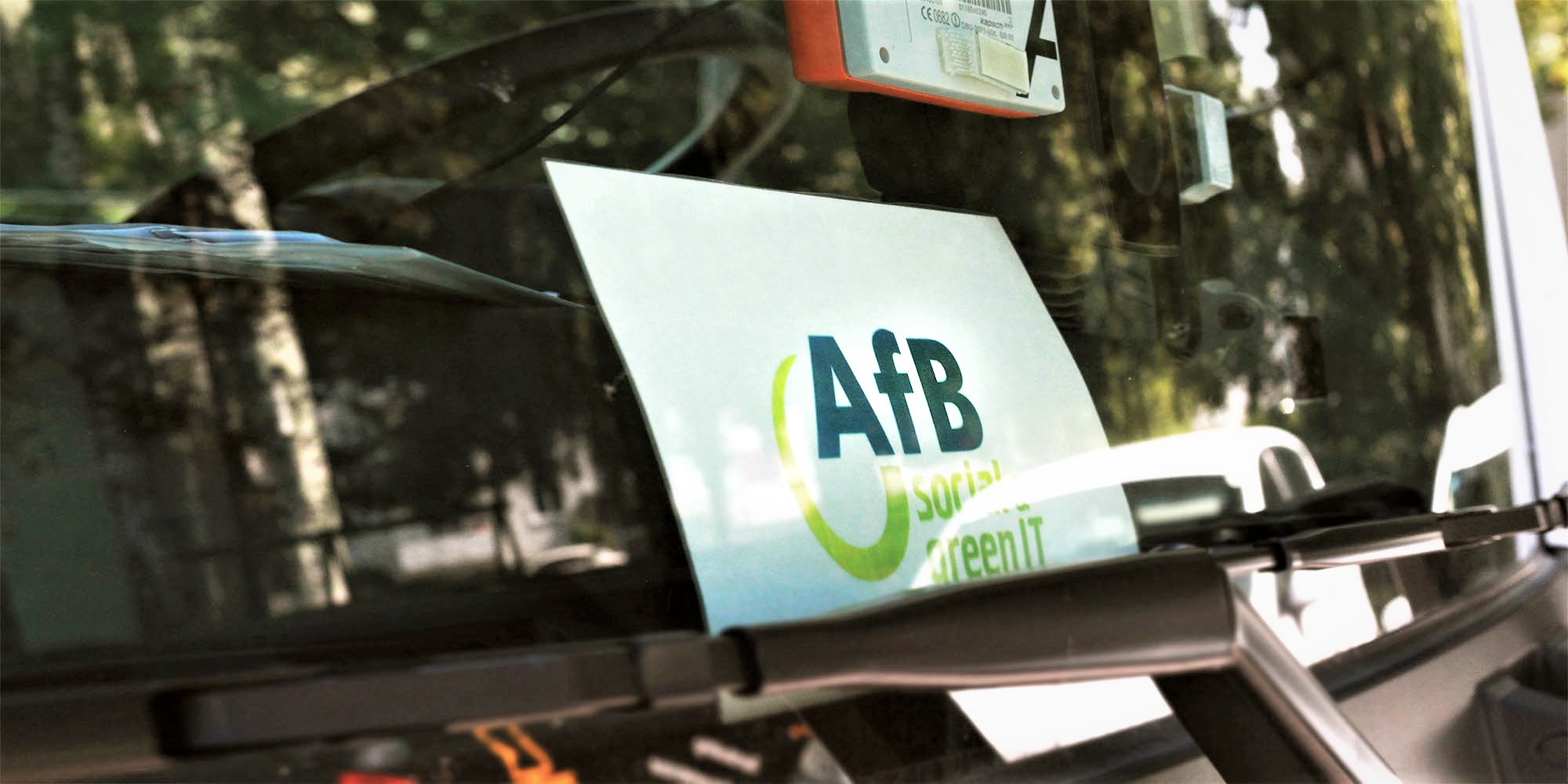Arbeit für Menschen mit Behinderung, or AfB in short, is Europe’s biggest non-profit IT company, and was founded in 2004 by private individuals who attached importance to social and personal commitment. The social aspect is emphasized by the fact that 50% of the employees of this IT company are people with disabilities, and this concept enables them to pursue high-quality employment. The company currently has 19 locations in five countries and has around 440 employees.
Not only the focus on social issues makes AfB unique, but also its sustainable corporate focus. AfB specialises in the reuse of discarded equipment from various business IT companies. The devices are inventoried, certified deleted, tested, cleaned and remarketed with a 1-year guarantee. With the help of this strategy, the company has ensured that the sorting of raw materials from IT tools to Third World countries, which are hazardous to the environment and human lives, has been contained. You might ask yourself: A wonderful company, but how does it fit in with Ars Electronica? Because we both focus on people and want to improve the environment through innovative technology, we quickly find a common denominator. To get an insight into the company’s work, we met with Birgit Sikora, partner manager of the AfB, digitally and learned even more interesting things.
Primarily people with disabilities are hired. Do they have to provide evidence of training or are they trained and prepared by the company?
Birgit Sikora: We advertise positions that we have to fill as normal with the relevant requirements via advertisements. In order to give people with disabilities particularly the chance to get a job with us, we work specifically with organisations such as myAbility, Haus-Aktiv, the associations T.I.W. for training, integration and further education, Autark und Phönix or ReIntegra. People with disabilities work with us in all areas, from logistics and technology to administration, warehousing, sales, consulting and development. They take on valuable tasks in the core business of IT services. Depending on the position or field of application, the appropriate basic or previous knowledge and training must of course also be available as a foundation for the job. Of course, within the company itself we also place a great deal of emphasis on internal training and further education. For example, we train apprentices with disabilities.
Was the sustainable aspect part of the company philosophy of AfB from the very beginning?
Birgit Sikora: The uniqueness of our business model lies in the combination of professional IT services with social and ecological added value (“social&green”). An interplay of social commitment, climate protection in terms of resource conservation and economic efficiency goes back to our establishment and has always been part of our corporate ideology.
Is there a positive ecological change that can be felt through your engagement in Europe or even worldwide?
Birgit Sikora: The valuable thing about our work, especially for companies and our partners who leave their used IT for recycling in our hands, is that we can express our sustainability effect in concrete figures. To prove our social-ecological impact, a method was developed in cooperation with the Technical University of Berlin that proves the tangible savings in energy, greenhouse gas emissions and metals. This is shown annually in a separate certificate as a life cycle assessment for the internal communication, public relations and sustainable reporting of our partners. 475,000 IT and mobile devices with a total weight of 3,100 tons were moved over 4,000 deliveries. 65% of the devices could be supplied to a second life cycle.
By remarketing used PCs, notebooks, TFTs (thin-film transistors) and printers, etc., the raw material segregation of IT equipment to third world countries, which is harmful to the environment and human beings, is contained.
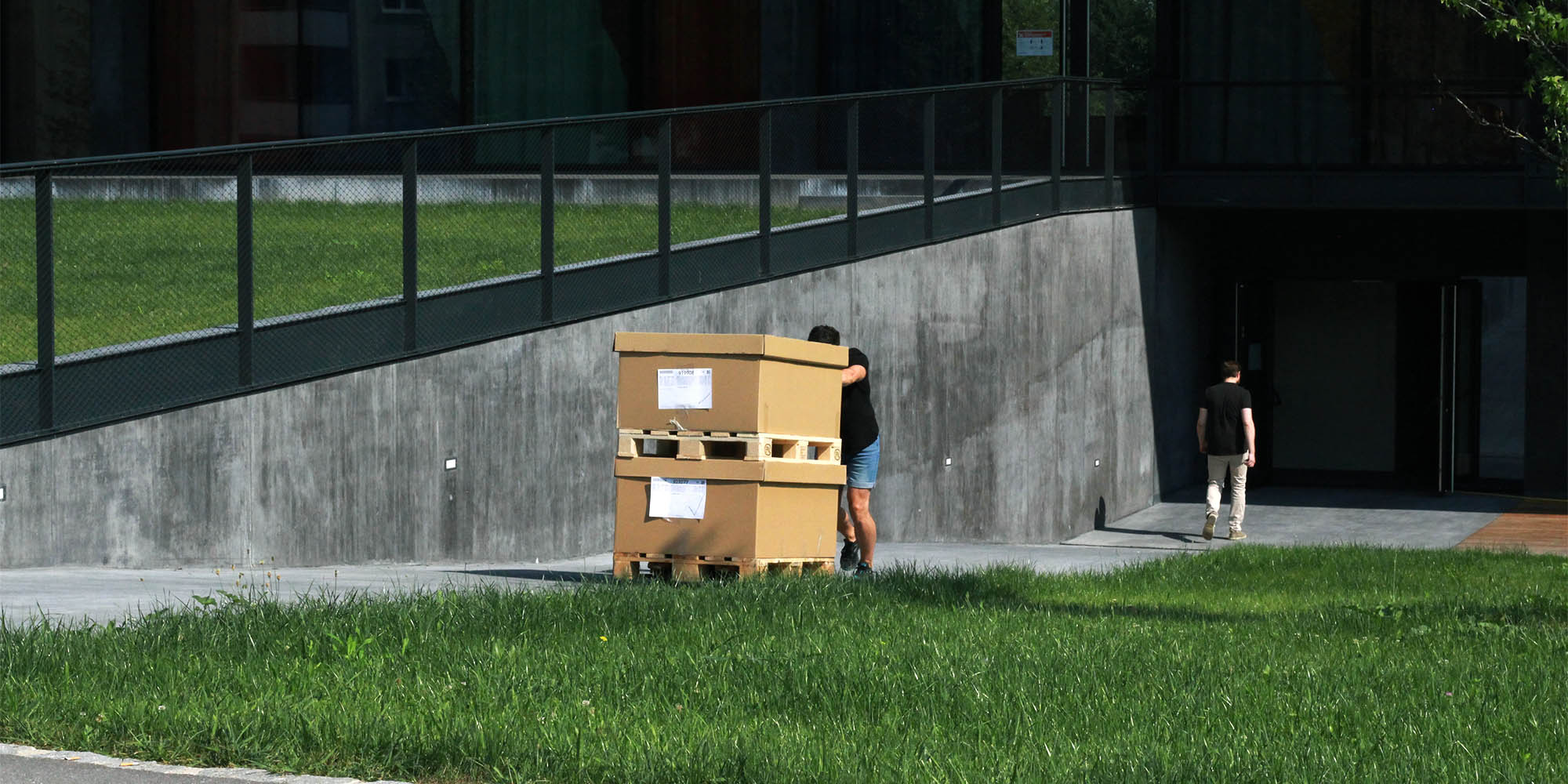
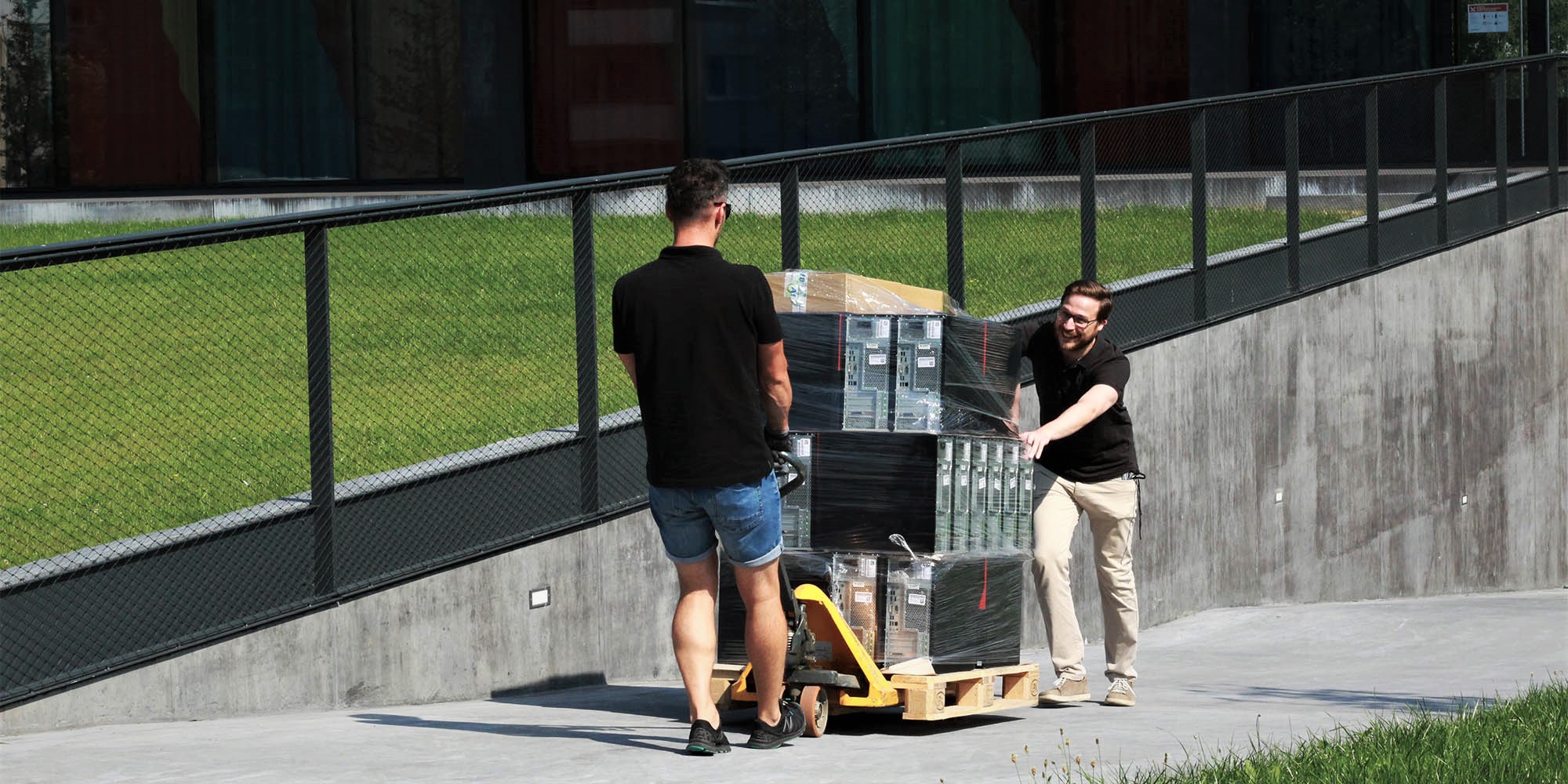
How does your company see a match in terms of content with the themes of Ars Electronica?
Birgit Sikora: When we received our first request in 2019 to provide IT hardware for Ars Electronica as an equipment partner, we didn’t think twice about whether or not we could provide the hardware that our cooperation partners needed and prepare for a second lifecycle of employing disabled people in the interest of sustainability.
“When innovation meets sustainability, this can only be a good symbiosis.”
What are future ideas/goals of the company?
Birgit Sikora: Our specific goal is to create jobs for 500 disabled people in Europe and at the same time to make a valuable contribution to reduce CO2 emissions through our core business of IT remarketing. Through our social & green business model we want to achieve savings of 200,000 tons of CO2, 300,000 tons of raw materials and 600,000 MWh of energy by 2025.
In order to achieve these ambitious goals, we plan to expand. AfB locations can be opened at any time in new countries or regionally in new federal states. Assuming there are enough companies, public facilities, institutions or organisations in the country or region that are willing to enter into a CSR partnership with AfB and use AfB’s core services as professional service providers.
The following general rule of thumb applies when transferring used IT equipment to the AfB: For the employment of an employee with a disability at the AfB, 2,500 units of transferred equipment per year are required. By spreading the AfB social & green IT concept regionally, local added value can be created and people with disabilities can be employed in the region.
“AfB locations can be opened at any time in new countries or regionally in new federal states. Assuming there are enough companies, public facilities, institutions or organisations in the country or region that are willing to enter into a CSR partnership with AfB and use AfB’s core services as professional service providers.”
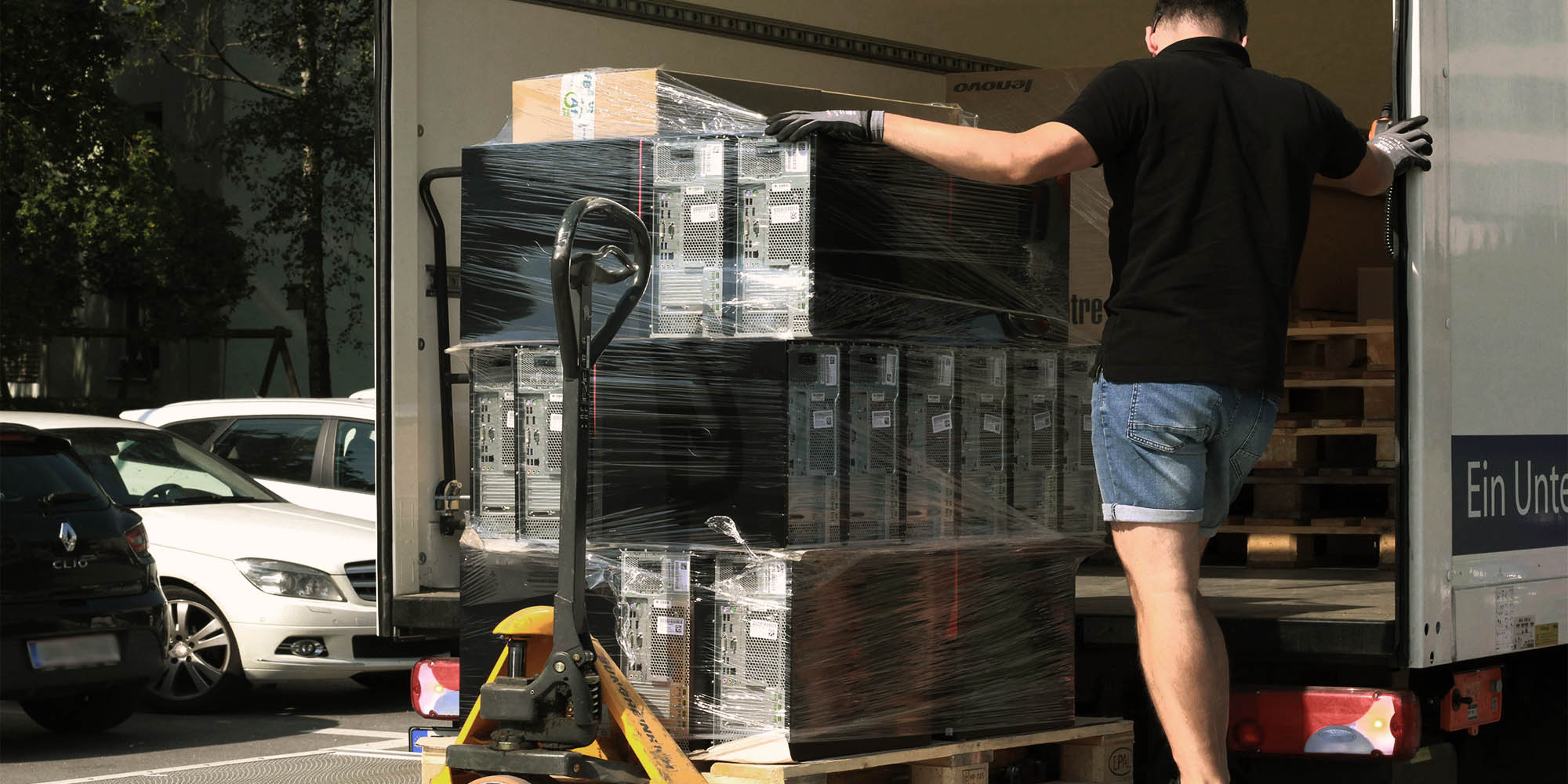
As a company, you have started a cooperation with the “CoderDojo” project and have provided it with IT equipment. But why exactly “CoderDojo”?
Birgit Sikora: Making children and young people familiar with IT technology and the programming world in a playful way at an early age is essential nowadays in the context of progressive digitalisation. This is precisely why we are very happy to support this regional project with our hardware, which we can use from the recycling of used equipment for a second life cycle.
In this way, we also draw attention to our work as a non-profit organisation which is committed to climate protection and the employment of people with disabilities.
“We are very happy about the laptop donated by AfB. As a non-profit, volunteer-supported association, we are dependent on the support of partners. The laptops allow us to offer children and young people who do not have their own computer at their disposal free loan of equipment. The active participation in the CoderDojo becomes thereby possible for more children and young people.” – Rainer Stropek (Chairman Coding Club Linz)
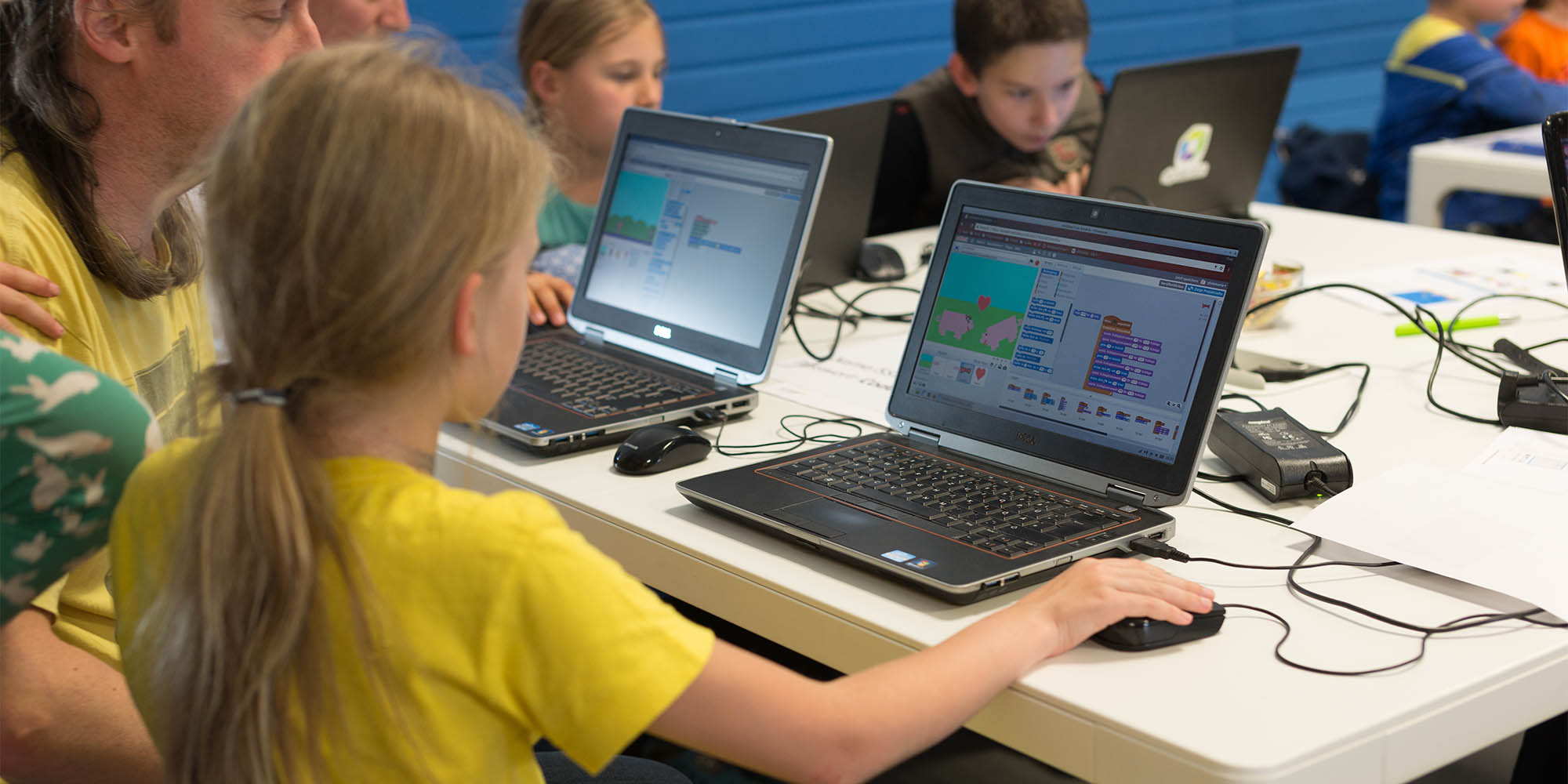
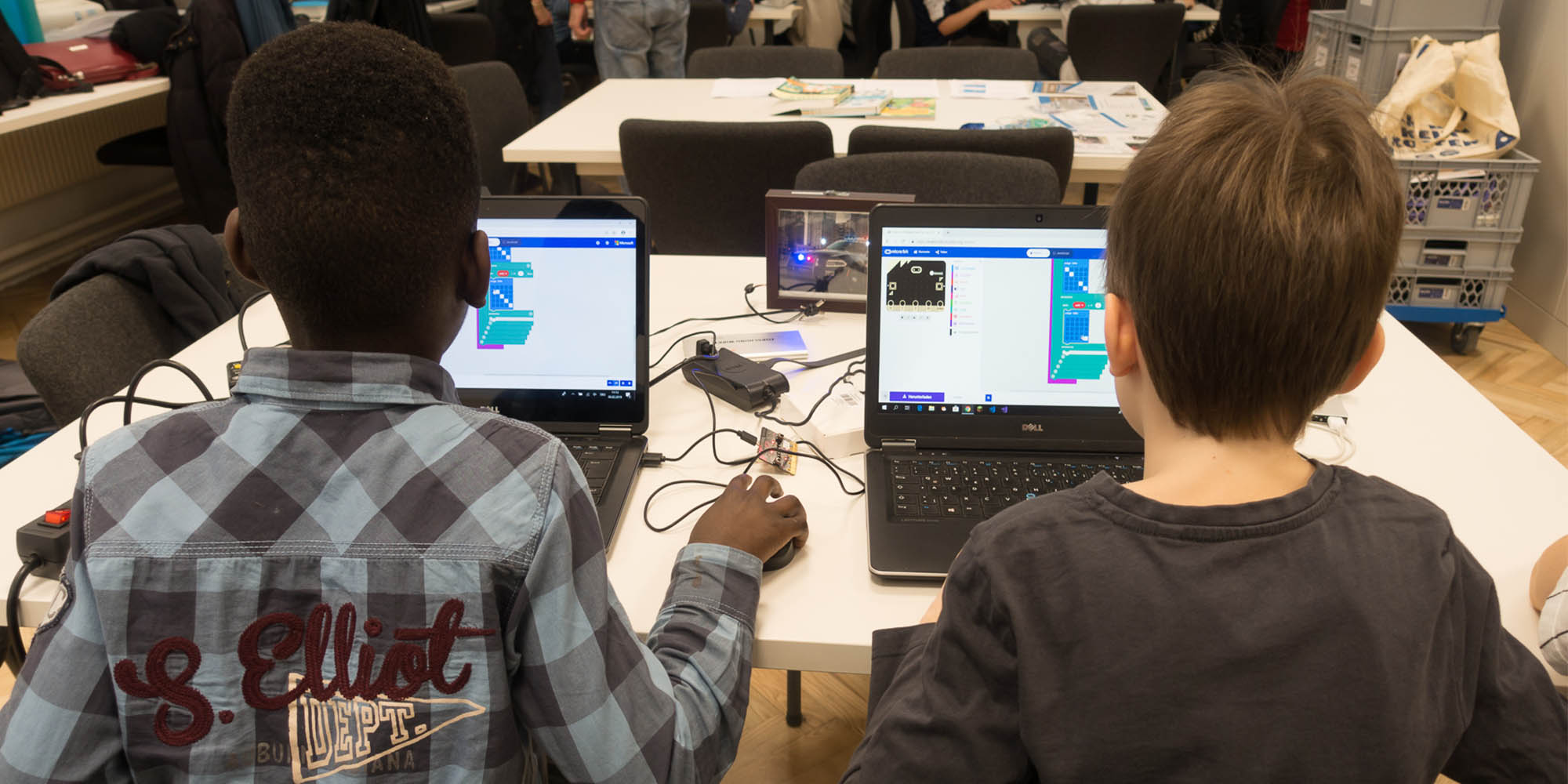
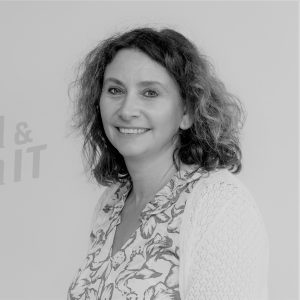
Birgit Sikora has been working in the IT environment as a finance/leasing specialist for over 20 years. After working for manufacturer leasing companies such as DEClease and Compaq Financial Services, she joined ACP IT Financing in 2002. In the following years she was responsible for the development of ACP Remarketing in addition to her work as Key Account Manager. In 2017 she moved to AfB, with whom she already had a close working relationship during ACP times. Since then, as Head of Sales Austria, she has been committed to the growth of the special AfB social & green IT business model in Austria and is also responsible for the entire area of partner management.
